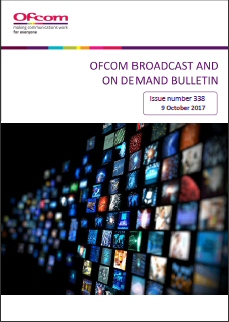When Gary Spedding sent his riposte to Emily Thornberry’s remarks on Israel’s ‘Right to Exist’ he got a surprising response. Labour List preferred censorship to debate.
 Fortunately, Jewish News, the UK publication of the Times of Israel had more faith in its readers ability to survive encountering something they may disagree with and published it online.
Fortunately, Jewish News, the UK publication of the Times of Israel had more faith in its readers ability to survive encountering something they may disagree with and published it online.
It is the outlawing of reasonable criticism of Israel that was the reason for the setting up of FSOI. The attacks on free speech come in many form:, denial of spaces for meetings; disciplining of people who defend Palestinian rights; and, as in this case, straight censorship. We are pleased to republish Gary’s article which repeats the simple point that states are human creations that are not, unlike their citizens, endowed with rights. They come, like South Sudan, and disappear, like Yugoslavia. Israel is no different.
Labour’s Shadow Foreign Secretary is wrong on Israel’s ‘right to exist’
Gary Spedding
Last week, in a high profile speech marking the centenary of the Balfour Declaration, the Shadow Foreign Secretary Emily Thornberry stated that there is “no place in the Labour Party” for anyone who holds the “abhorrent view” that Israel has no right to exist.
Such a notion is extremely controversial. And one that has been peddled by the Israeli establishment for decades. This piece of political rhetoric is actually designed to shut down any hope of a fruitful peace process between Israelis and Palestinians. Israeli figures have been pushing for foreign politicians, in countries that have highly regarded parliamentary democracy, to adopt this problematic soundbite when discussing Israel as it gives it a veneer of legitimacy.

Let me be clear from the outset that I firmly believe that all people, including Jewish people, have the right to both individual and collective self-determination. To quote President Woodrow Wilson, who was a strong proponent of the principle; “people may now be dominated and governed only by their own consent.” However, there are conflicting definitions and legal criteria surrounding self-determination itself and the plain truth is that no state or political entity has an inherent “right to exist”, and as such this term is legally meaningless. One of the reasons the ‘right to exist’ won’t be found codified in contemporary international law that it is near impossible to fulfil for the thousands of unique nations on the planet today.
Emily’s highly toxic statement is dangerous to both Labour Party members and the wider community engaged on the Israel-Palestine conflict. She has, like so many before her, confused a people’s inalienable right to self-determination with a non-existent ‘right to exist’ that is associated more with nation-states than people – in particular, ethnocratic states like Israel.
Now some might argue that the right to self-determination automatically grants people the right to a state. I can certainly understand how one might reach this viewpoint given the fact people should be able to freely choose how to express their self-determination. And yet there are limitations and certain responsibilities accompanying self-determination – coupled with certain vagueness around how a national group can achieve it without infringing upon the same rights held by others within the same territory. This is one of the issues at the heart of the Israel-Palestine conflict; two people within the same territory with conflicting national movements.
In addition, the demand by Israel’s establishment that their state’s “right to exist” be recognised is, in fact, a major obstacle to securing a political settlement between Israelis and Palestinians. It was never a demand in the peace processes with Egypt or Jordan that Israel, as a Jewish State, should be recognised as having a ‘right to exist’ – although later the leaders of both Egypt and Jordan agreed that in signing peace treaties they had implicitly accepted Israel’s existence. By including this demand when it comes to the Palestinians it effectively shuts down any hope of a peace process, but also has the added bonus of defining terms of debate elsewhere in the world. This has meant the labelling of anyone who deviates from the status quo as being motivated by evil ideology, of wanting the ‘destruction of Israel’, and by default wanting the wholesale slaughter of the Jewish people – something which, outside of a tiny minority of extreme fringes, is actually ludicrous.
For Palestinians, recognising Israel’s ‘right to exist’ exclusively as a Jewish state would mean accepting the legitimacy of their own dispossession and expulsion, something they will never do, which is why the Israeli government insist on this as an early prerequisite for negotiations – because it is the Israeli government that has all the cards when it comes to building peace in a conflict mired by power asymmetries.
For people like me, who believe in the importance of allowing different visions for the future in Israel-Palestine, and as long as it’s within a non-violent political process, the words of the Shadow Foreign Secretary are alarming. I do not accept that I have no place in the Labour Party simply for holding the reasonable view that no states have an inherent right to exist. Those who share Emily Thornberry’s view are saying that there is no place in Labour for those who support a shared future for Israelis and Palestinians within a bi-national state, or any kind of solution where equal rights are enshrined and basic democratic freedoms codified and guaranteed.
Emily Thornberry appears to have inadvertently bolstered the language of the Israeli right, thus helping to sow anxiety and fear among Labour Party members who might wish to discuss alternative yet still sustainable, realistic and durable resolutions to the Israel-Palestine conflict. By telling people they have to accept that Israel, uniquely among all other states, has the right to exist and that the only solution to the conflict is that of a two-state solution, alternative visions for the future are pushed aside. Palestinian voices in particular are being stripped of agency, spelling disaster for any push for peace. We get nowhere by shutting out other parties to the conflict. Failure to bind them into a process ensures peace shall remain elusive.
I imagine a substantive majority of Labour Party members fall outside the terms defined in Emily Thornberry’s statement yesterday. We have seen a number of party members suspended for voicing entirely reasonable criticisms of Israeli government policy and the conduct of the Israeli state. I am deeply concerned that Emily seems to have a fairly weak grasp of the intricate and complex issues surrounding Israel-Palestine, and as a result she is prone to making statements imbued with toxic political sentiments, offering concessions aimed at pleasing too many audiences, without perhaps even realising the full extent of the consequences afterwards.
Her latest statement contributes to a growing push to have perfectly reasonable debate shut down and where pro-Palestine party members are targeted, marginalised, demonised and delegitimised by those who wish to see them silenced, or worse, expelled.
As a Labour Party member, I will continue to hold the consistent view that no political entity or state has a ‘right to exist’ and shall defend my right to a nuanced set of positions on Israel-Palestine as someone who very much desires to see a genuine and just solution to the Israel-Palestine conflict.





